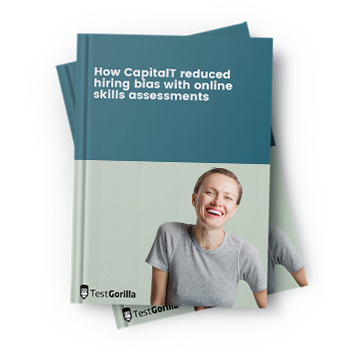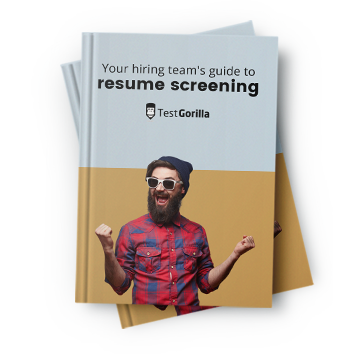Hiring immigrants and foreign workers is a great way to tap into broader, more diverse talent pools. However, if you employ overseas workers, staying on top of immigration law updates is essential. Failing to comply with US immigration laws can land you in hot water, leading to hefty fines or even criminal prosecution.
Immigration laws and policies constantly change, and keeping track of your evolving obligations can feel overwhelming. You may even be reluctant to hire immigrants or foreign workers for fear of breaking the law. However, there are many ways to stay updated on your legal obligations as an employer. This article is a starting point.
Below, we walk you through seven key immigration law updates, including how they may apply to your business and what opportunities to hire immigrant talent these changes may offer.
Table of contents
- 1. Additional H-2B visas for 2024
- 2. H-1B visa renewal pilot program
- 3. Proposed additional protections for H-2A workers
- 4. Expedited deferred action
- 5. Increased refugee intake
- 6. Extra visas for Cubans, Haitians, Nicaraguans, and Venezuelans (CHNV)
- 7. Extended temporary protected status for Venezuelans
- Stay up to date with immigration law changes
- Using pre-employment testing to hire foreign workers
1. Additional H-2B visas for 2024
The Department of Labor (DOL) and Department of Homeland Security (DHS) announced an additional 64,716 H-2B visas for fiscal year 2024 to address labor shortages.
H-2B visas are for temporary, non-agricultural workers. So, if you’re in an industry like restaurants, hotels, or construction and rely on seasonal workers, these extra visas may give you access to an expanded workforce. These visas might help you address other labor shortages, too.
Of the additional 64,716 visas:
44,716 are for returning workers – workers who held an H-2B visa in the previous three years
20,000 are for non-returning workers from El Salvador, Honduras, Haiti, Guatemala, Ecuador, Costa Rica, and Colombia
To support workers on these visas, you must fulfill the standard criteria for H-2B visas and show that your business is experiencing or at risk of experiencing “irreparable harm” if you can’t hire the workers you request.
Interested in applying for these visas on behalf of foreign workers? You must do so before September 16, 2024 – or before all the additional visas are taken.
2. H-1B visa renewal pilot program
The government has announced a proposed pilot program that would allow H-1B visa holders to renew their visas in the US. The program is due to start in early 2024, but it’s currently under review.
H-1B visas allow skilled migrants in specialty occupations to work in the US temporarily. They’re for workers with highly specialized knowledge and at least a bachelor’s degree qualification. They’re often granted to workers with specialized IT, engineering, and science skills.
H-1B visa holders must typically leave the US to renew their visas. This process often involves months-long delays while visa holders wait for renewal appointments at US consulates (these are like smaller-scale embassies). The pilot program allows workers to get the necessary visa stamp in the US without needing to apply through a consulate in another country.
This proposed change would remove the need for your H1-B workers to take time away from work to renew their visas, reducing disruptions to your workplace.
The program is expected to be capped at 20,000 applicants, and eligibility criteria will apply.
Other proposed changes to H-1B visas are currently under a public comment period. These changes, if approved, could:
Prevent related businesses from submitting multiple applications for the same worker
Confirming the right of the US Citizenship and Immigration Service (USCIS) to inspect workplaces (denying access to USCIS may result in the rejection of an application)
These changes are meant to prevent fraud, misuse, and noncompliance in the visa application process.
3. Proposed additional protections for H-2A workers
A proposed rule currently under review aims to enhance protections for H-2A workers.
H-2A visas are for temporary foreign agricultural workers – a group especially vulnerable to abusive labor practices. The proposed changes include:
Expanding workers’ right to advocate for better working conditions
Increasing protections against employer retaliation
Requiring employers who hire H-2A workers via agencies or recruiters to provide copies of these agreements to the DOL
Penalizing employers who fail to give workers sufficient notice of delayed start dates
Prohibiting employers from providing vehicles for workers to get to and from work without seatbelts for every occupant
Prohibiting employers from keeping workers’ identification or immigration documents, including their passports
The proposed rule was published on September 12, 2023, and the 60-day comment period expired on November 14, 2023, so keep an eye out for the publication of a final rule.
4. Expedited deferred action
As of January 2023, the government has implemented an expedited deferred action request process. Deferred action is when USCIS or an immigration judge delays the removal of a non-citizen.
The expedited process is designed to encourage non-citizen workers to report labor rights violations by protecting them from the threat of employer retaliation and removal.
This measure was introduced in response to increasing concerns about the exploitation of immigrant workers and the need to ensure their protection. It reinforces your obligation as an employer to treat all employees – including immigrant and foreign workers – fairly and lawfully.
5. Increased refugee intake
President Biden has set a target of resettling 125,000 refugees in the fiscal year 2024. If successful, this represents the highest intake of refugees in the last 30 years.
This increase isn’t just a humanitarian achievement. It’s good news for employers, offering an opportunity to access a talent pool of hidden workers and diversify your workforce.
6. Extra visas for Cubans, Haitians, Nicaraguans, and Venezuelans (CHNV)
In another expansion of the talent pool for US employers, the US started offering 30,000 places per month for nationals from CNHV countries from January 2023.
This program allows individuals to enter the US for humanitarian reasons or significant public benefit under a system called humanitarian parole. Individuals can remain in the US for up to two years and apply for employment authorization.
This is another measure that potentially expands your candidate pool.
7. Extended temporary protected status for Venezuelans
In September 2023, DHS announced an 18-month extension to Venezuelans' temporary protected status (TPS), which may apply to up to 472,000 Venezuelans living in the US.
Venezuelans with existing TPS status and work authorization can continue to work under the extension. Venezuelans applying for TPS can also apply for work authorization.
Do you already employ Venezuelan workers with TPS status? You can retain them and avoid the costs of recruiting and onboarding new hires.
Other TPS extensions during 2023 include those for people from Cameroon, Afghanistan, Sudan, and Ukraine.
Stay up to date with immigration law changes
Immigration is a complex and frequently changing area of law. Sources of reliable information that will help you stay updated on relevant developments include:
USCIS’s news releases
You should always seek advice from an attorney to ensure you comply with your obligations as an employer hiring foreign workers.
Using pre-employment testing to hire foreign workers
Staying updated on changes to immigration laws affecting your workforce is essential to avoiding compliance issues and penalties. Beyond that, you’ll also learn about opportunities these changes may present – including larger candidate pools.
Hiring foreign workers involves additional time and money, so ensure you’re making the right investment by adopting a skills-based approach to recruitment.
TestGorilla is a leading pre-employment testing platform, offering over 400 scientifically-backed tests. You can use these tests to tailor assessments for detailed, unbiased insights into candidates’ job-related skills and personalities.
Curious about how TestGorilla can help you diversify your workforce with foreign workers? Watch a live demo or sign up for a free account today!
Disclaimer
The information in this article is a general summary for informational purposes and is not intended to be legal advice. Laws are subject to constant change, and their applications vary based on your individual circumstances. You should always seek legal advice from a qualified attorney about your legal obligations as an employer. While this summary is intended to be informative, we cannot guarantee its accuracy or applicability to your situation.
Related posts
Hire the best candidates with TestGorilla.
Create pre-employment assessments in minutes to screen candidates, save time, and hire the best talent.
Latest posts
The best advice in pre-employment testing, in your inbox.
No spam. Unsubscribe at any time.

Hire the best. No bias. No stress.
Our screening tests identify the best candidates and make your hiring decisions faster, easier, and bias-free.
Free resources
Anti-cheating checklist
This checklist covers key features you should look for when choosing a skills testing platform
Onboarding checklist
This resource will help you develop an onboarding checklist for new hires.
How to find candidates with strong attention to detail
How to assess your candidates' attention to detail.
How to get HR certified
Learn how to get human resources certified through HRCI or SHRM.
Improve quality of hire
Learn how you can improve the level of talent at your company.
Case study: How CapitalT reduces hiring bias
Learn how CapitalT reduced hiring bias with online skills assessments.
Resume screening guide
Learn how to make the resume process more efficient and more effective.
Important recruitment metrics
Improve your hiring strategy with these 7 critical recruitment metrics.
Case study: How Sukhi reduces shortlisting time
Learn how Sukhi decreased time spent reviewing resumes by 83%!
12 pre-employment testing hacks
Hire more efficiently with these hacks that 99% of recruiters aren't using.
The benefits of diversity
Make a business case for diversity and inclusion initiatives with this data.























